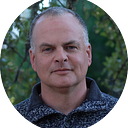Kevin Dalby Reveals: Can Research Scientists Have Work-Life Balance?
For professionals who view their vocation as their life’s purpose, not just a source of income, maintaining a healthy work-life balance can be challenging. Research scientists are often these types of people. Here, Kevin Dalby, a professor of chemical biology and medicinal chemistry at the University of Texas in Austin, explores how research scientists and other dedicated professionals can establish and maintain a healthy balance between the work they love and other aspects of their lives.
The ability to do what you love to do and make a living doing it is a desirable circumstance. Too often, people do the work they can to afford to do what they love.
There is, however, a danger in living life with a single overwhelming focus on work. It’s called the lack of balance.
Why Too Much Work is Dangerous
Work burnout is a real thing — even for those who love their work. Doing too much of any single activity will eventually cause indifference. Humans need change to stay motivated. It is a variety that keeps our minds sharp and engaged. It may seem counterintuitive, but working less will help you perform better.
Work causes stress — yes, even enjoyable work. It requires your mind to perform at a high level — think of an engine running at high RPMs; it is not sustainable indefinitely. When working, decisions need to be made, deadlines met, and problems solved. Your mind needs time to decompress and relax. Taking time to block out all work-related thoughts and ideas will help you perform better when returning to work.
Workaholics often suffer from poor physical health. Especially if your work does not require physical exertion, a sedentary lifestyle may cause significant health risks.
Finding and Maintaining Balance
Like many other professionals, research scientists develop and rely on discipline to get through the rigors of a vast academic experience. It is this same discipline that is best suited to create a work-life balance. By setting and then sticking to a schedule that limits the number of hours in the laboratory or working at home, time for other interests and pursuits can be made available.
Developing a hobby can create a pressure relief valve needed to reduce stress. If you don’t have any hobbies and are not inclined toward any specific leisure activity, explore a few possibilities until you find one you can stick with. Maybe it is racketball, or perhaps it’s fishing, but find some activity that does not require the same level of analytical thinking as your job. Keep after it until you get good at it, then you may find you enjoy it.
Don’t neglect your body. For your mind to perform at peak levels, you need to be physically fit. Make daily exercise a priority, and don’t cheat. Just like you pushed through your studies, push yourself physically. Once you’ve done this long enough to realize the physical and mental benefits, you’ll be motivated enough to continue.
Most importantly, value personal relationships. Even research scientists that feel more comfortable in a lab or in front of a computer need rich and meaningful personal relationships. These relationships are likely to outlast your career, and in the end, they may be the only thing of lasting consequence. Nurture these relationships, just like you would an important project at work. Give them your time and best effort. They will pay you back with great dividends.
About Kevin Dalby
Dr. Kevin Dalby is a chemistry professor and medicinal chemistry professor in the College of Pharmacy and Department of Oncology at The University of Texas in Austin. He is researching the mechanisms of cancer cell signaling to develop targeted therapeutics. Dr. Dalby is a co-director of the Texas Screening Alliance for Cancer Therapeutics and the principal investigator on a $2.3 million CPRIT grant that gives Texas scientists access to drug discovery research resources. When he is not working, he enjoys photography and spending time in the Texas countryside with his dogs.
